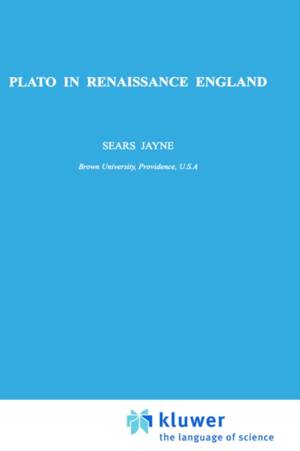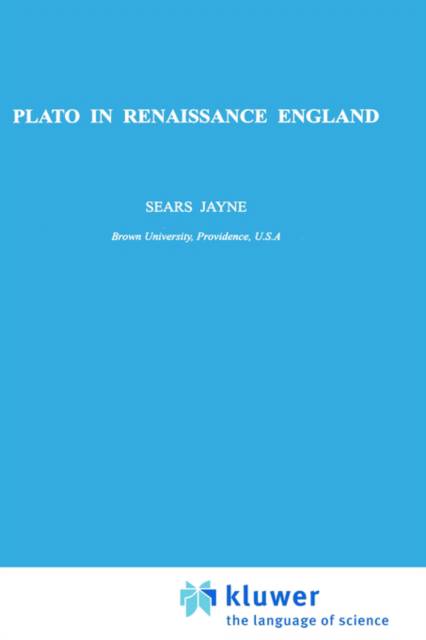
Door een staking bij bpost kan je online bestelling op dit moment iets langer onderweg zijn dan voorzien. Dringend iets nodig? Onze winkels ontvangen jou met open armen!
- Afhalen na 1 uur in een winkel met voorraad
- Gratis thuislevering in België vanaf € 30
- Ruim aanbod met 7 miljoen producten
Door een staking bij bpost kan je online bestelling op dit moment iets langer onderweg zijn dan voorzien. Dringend iets nodig? Onze winkels ontvangen jou met open armen!
- Afhalen na 1 uur in een winkel met voorraad
- Gratis thuislevering in België vanaf € 30
- Ruim aanbod met 7 miljoen producten
Zoeken
Omschrijving
This book offers a radical reappraisal of the reputation of Plato in England between 1423 and 1603. Using many materials not hitherto available, including evidence of book publishing and book ownership, together with a comprehensive survey of allusions to Plato, the author shows that the English were far less interested in Plato than most historians have thought. Although the English, like the French, knew the `court' Plato as well as the `school' Plato, the English published only two works by Plato during this period, while the French published well over 100 editions, including several of the complete Works. In England allusions to Plato occur more often in prose writers such as Whetstone, Green, and Lodge, than in poets like Spenser and Chapman. Sidney did take his `Stella' from Plato, but most English allusions to Plato were taken not directly from Plato or from Ficino, but from other authors, especially Mornay, Nani-Mirabelli, Ricchieri, Steuco, and Tixier.
Specificaties
Betrokkenen
- Auteur(s):
- Uitgeverij:
Inhoud
- Aantal bladzijden:
- 204
- Taal:
- Engels
- Reeks:
- Reeksnummer:
- nr. 141
Eigenschappen
- Productcode (EAN):
- 9780792330608
- Verschijningsdatum:
- 28/02/1995
- Uitvoering:
- Hardcover
- Formaat:
- Genaaid
- Afmetingen:
- 156 mm x 234 mm
- Gewicht:
- 498 g

Alleen bij Standaard Boekhandel
+ 335 punten op je klantenkaart van Standaard Boekhandel
Beoordelingen
We publiceren alleen reviews die voldoen aan de voorwaarden voor reviews. Bekijk onze voorwaarden voor reviews.











